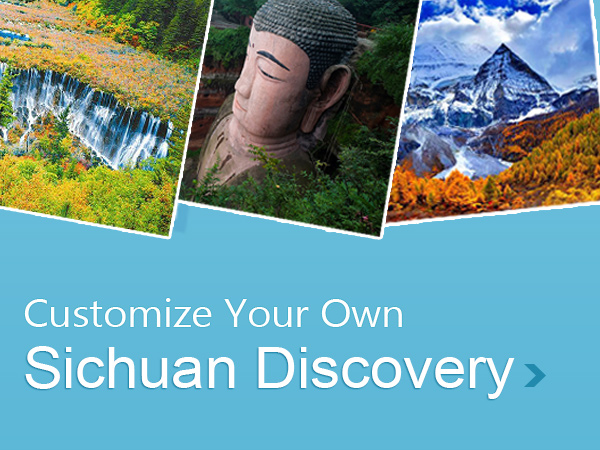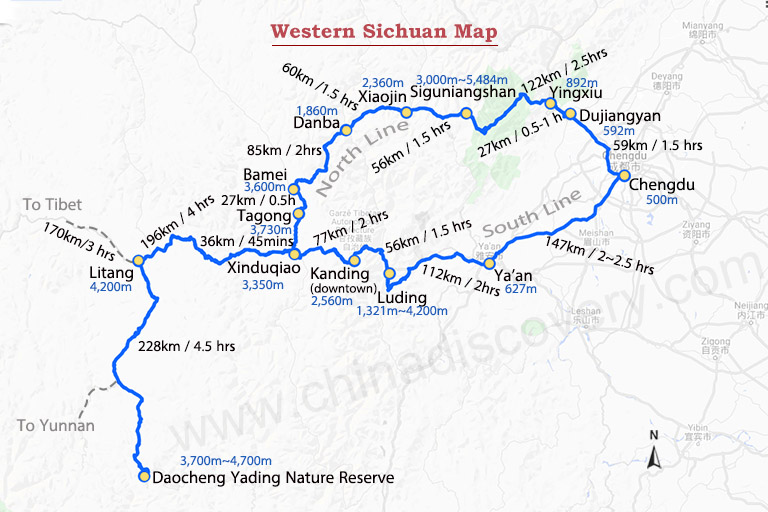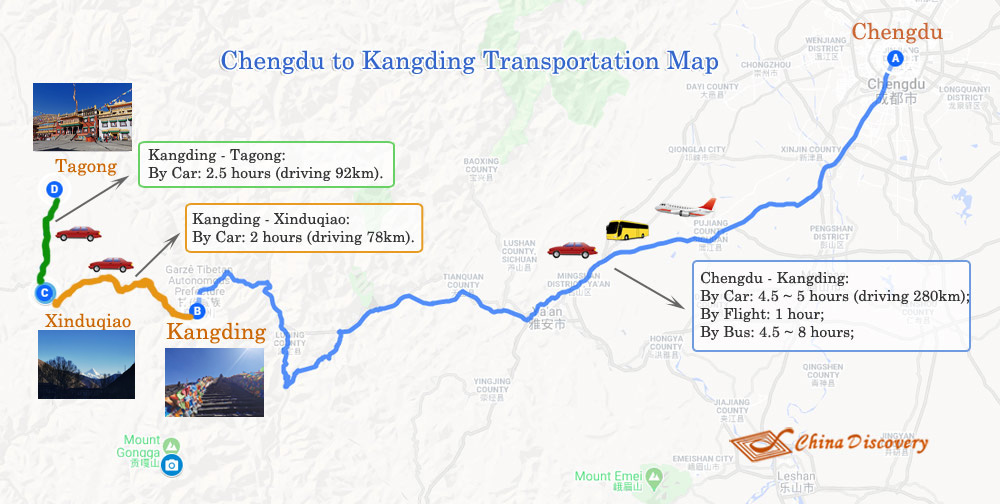Western Sichuan Travel Tips: Top 15 Tips for Western Sichuan
With unbeatable alpine snow-caped mountains, grasslands, meadows, valleys, lakes and a strong taste of Tibet with less red tape, Western Sichuan has gradually become a big hit for both landscape and culture exploring.
Heading to Western Sichuan soon? Here are top 15 essential Western Sichuan tips you’d better know before you go.
1: Western Sichuan, Tibetan Sichuan & Tibet
When it comes to Tibet, it usually refers to Tibet Autonomous Region on China’s southwestern edge, which is composed of Lhasa, Shigatse, etc. Western Sichuan is the area west of its capital Chengdu, including Dujiangyan, Ya’an, Kangding, Danba, Daocheng Yading, Siguniangshan, Xinduqiao, Tagong, Litang, Daofu, Batang, etc.
Western Sichuan neighbors Tibet on its west edge and most part of this region is historically connected with Tibet. Therefore, sometimes Western Sichuan, the area west of Kangding in particular, is also called Tibetan Sichuan.
Foreigners are required to fill for Tibet Entry Permits for a Tibet tour, while there are no such rules in Western Sichuan (Tibetan Sichuan) region. Besides, Tibetan Sichuan offers similar beauty and culture with Tibet!
2: Altitude Sickness is A Real Threat
Once you step into the Western Sichuan region, you are at an average altitude of 2,500m or so. And with the mountain or plateau height ascends, this number will increase, which means you’ll may be walking around day-to-day with altitude sickness. And you will be more likely to get the altitude sickness if you risk getting up even higher by hiking or trekking mountains, because most of the mountains in this region are at 3,000, 4,000m or even 4,000m on average.
Before the trip, you are advised to have some Rhodiola Rosea tablets at least a week before you go. However, Rhodiola Rosea may be not available for everyone and cannot cure everything. If possible, please listen to your doctors about whether you can have a tour and whether you can take some medicine.
During the trip, you are suggested to be accompanied by an experienced local guide and walk slowly, drink more hot water and wear warmer.
Best Western Sichuan Tour:
> 4 Days Daocheng Yading Classic Hiking Tour from Chengdu (by Flight)
> 4 Days Mount Siguniang Classic Hiking Tour
| Destination | Chengdu | Daocheng Yading | Ya’an | Luding | Kangding | Xinduqiao | Tagong |
|---|---|---|---|---|---|---|---|
| Altitude (m) | 500 | 3000~5484 | 627 | 1,321~4,200 | 2,560 | 3,300 | 3,730 |
| Destination | Danba | Mount Siguniang | Dujiangyan | Batang | Jinchuan | Daofu | Litang |
|---|---|---|---|---|---|---|---|
| Altitude (m) | 1,860 | 3,000~5,484 | 592 | 2,580 | 2,000 | 3,250 | 3,600~4,600 |
3: Travel Alone is Not a Good Idea
Travelling Western Sichuan alone is not a good idea. During the way, you need professional local guides to tell you how to find the right way, how to behavior politely to the local culture and how to relieve or acclimatize altitude sickness! Yes, this region offers unbelievable breathtaking landscapes to be explored. However, the trip may be not that appealing if you don’t know the cultures.
Besides, if you want to go further to those mountains and forests like Mount Siguniang, you are required to be accompanied by experienced local guides, or you are not allowed to do so.
China Discovery based in Chengdu knows everything of Western Sichuan and have helped numerous foreigners planning their Western Sichuan tours! If you are in need, please feel free to contact us for help!
 Travel with Experienced Guide & Driver
Travel with Experienced Guide & Driver
4. Best Time to Western Sichuan - Weather & Climate
Western Sichuan is a large area composed of a complex climate. The temperature there changes as season changes and altitude rises. Normally, the best time to visit Western Sichuan is from mid-May to October. From mid-May to July, Western Sichuan is a lively world with flourishing alpine flowers in different colors. In the autumn season from August to October, it is the time to meet with oil-painting-like colorful forests, meadows and valleys. However, from November to April of the next year, the scenery is relatively monotonous and the road is slippery to navigate.
Mount Siguniang Weather, Clothing & Best Time to Visit>>
Daocheng Yading Weather, Clothing & Best Time to Visit>>
Kangding Westher & Best Time to Visit >>
Hot Western Sichuan Tour:
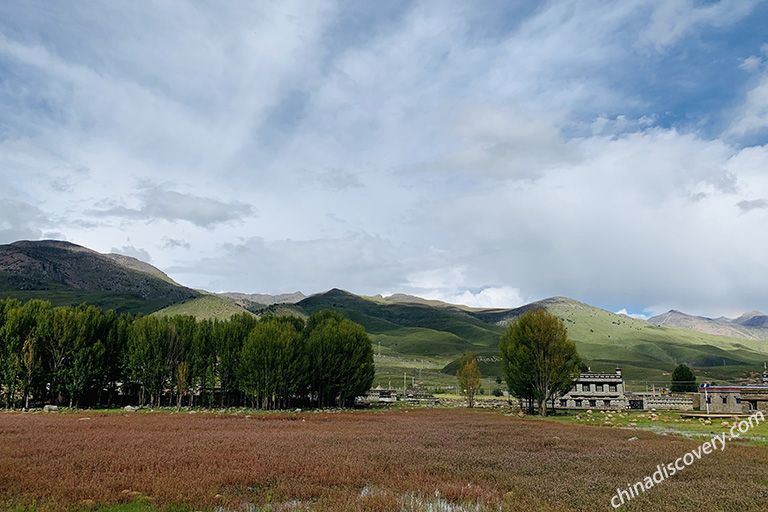 Daocheng Yading in Autumn
Daocheng Yading in Autumn
5: Transportation - Flight, Coach or Private Car
In the whole Western Sichuan area, there are all 4 airports, including Kangding Airport (康定机场), Daocheng Yading Airport (稻城亚丁机场), Hongyuan Airport (红原机场) and Gesar Airport (格萨尔机场). Amongst the four airports, Kangding Airport and Daocheng Yading Airport are popular for tourists and have flights from Chengdu. However, the flight tickets are a little bit expensive.
Compared with flights, tourists prefer travelling Western Sichuan by private car or coach, since it allows them to acclimatize the altitude by going up slowly and it takes less money. Private car travels are the hottest chosen way, because private car tours are more flexible and convenient.
With the development of Western Sichuan, highways well-paved with asphalt have already reached to all the major counties and cities there. The driving roads are in good condition, but there are many tunnels and turns. Sometimes there may be temporary transportation restrictions, which may take one hour or so to stay at the point you stop. And in the mountainous areas to the villages, the driving roads are usually in its original looks, with no signs to point out the directions and no barrier to protect you. The frequent alpine frogs make the driving more dangerous. Therefore, you are suggested to hire an experienced local driver with you.
 Kangding Airport
Kangding Airport
 Daocheng Yading Airport
Daocheng Yading Airport
6: Accommodation and Toilets
Accommodation in Western Sichuan region is relatively limited but much better than what you could imagine in such a remote area. You will find a good hotel to stay near almost every tourist attraction you are heading to. And the hotels in the city area can be better.
In the city or county central areas of Western Sichuan, it is not that difficult to find a good western-style toilet or a squat toilet. However, things in the mountainous areas may sometimes be quite different. When it comes to those amazing tourist sites hidden in splendid but wild mountains, tissues become precious goods, since it sounds crazy to have shops or even stalls settled in the vast forest. Therefore, you are advised to bring some wet or dry tissues with you.
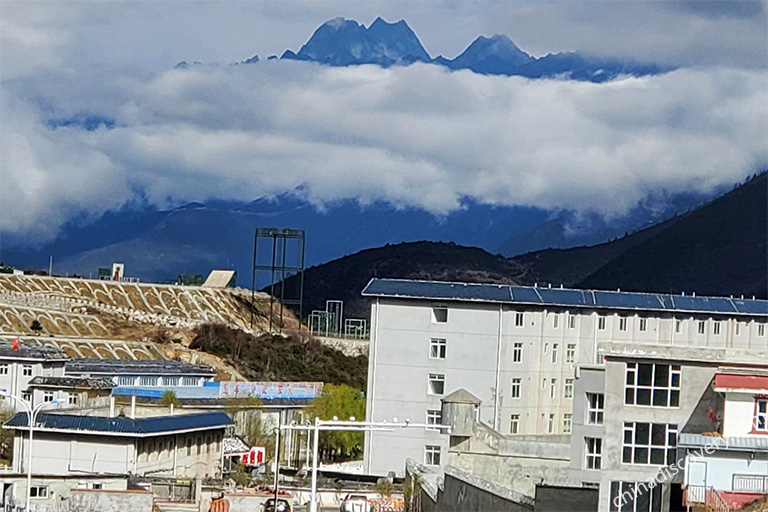 Kangding Downtown
Kangding Downtown
7: Online Maps Won’t Always Answer Your Questions
Foreign cards don’t work there. And with the deeper you go into those mountains, the less you will get answers from your Online maps and phone with even Chinese SIM cards. If possible, you are suggested to take a paper map with you. And make full use of your compass provided by your phone.
Besides, take emergency batteries and portable power source with you in case you are abandoned by your phone.
8: Trekking in Western Sichuan is Really a Thrilling Challenge
Millions of alpine mountains and valleys in Western Sichuan create a paradise for trekking. From easy entry-level trails to tough pilgrimage koras, there are tons of trekking routes for hiking lovers to have fun. The most notable and popular trails are in Daocheng Yading, Mount Siguniang and Minya Konka (Mount Gongga). Daocheng Yading, “the Last Pure Land on Our Blue Planet”, offers the most wonderful routes getting close to the most epic lakes and meadows. The three holy mountains in Daocheng Yading are also sublime and splendid. Mount Siguniang, the queen of Sichuan Mountains, provides tourists with both normal valley trekking chances and also wild and adventurous summit conquers. Trekking among its valleys can bring you into a fairyland far beyond your word. While its forests and mountains prepare extreme wild trekking experience for professional trekkers. Mount Gongga, the King of Sichuan Maintains and also the hardest mountain to be conquered in China, is a lifelong topic for photographers and also trekkers.
Considering the difficult level of hiking in these mountains, Daocheng Yading and Mount Siguniang offer both basic routes and tough routes for you to choose. While in Mount Gongga, the trekking experience there requires more than in the above two mountains.
Popular Western Sichuan Trekking Tour:
> 4 Days Daocheng Yading Classic Hiking Tour from Chengdu (by Flight)
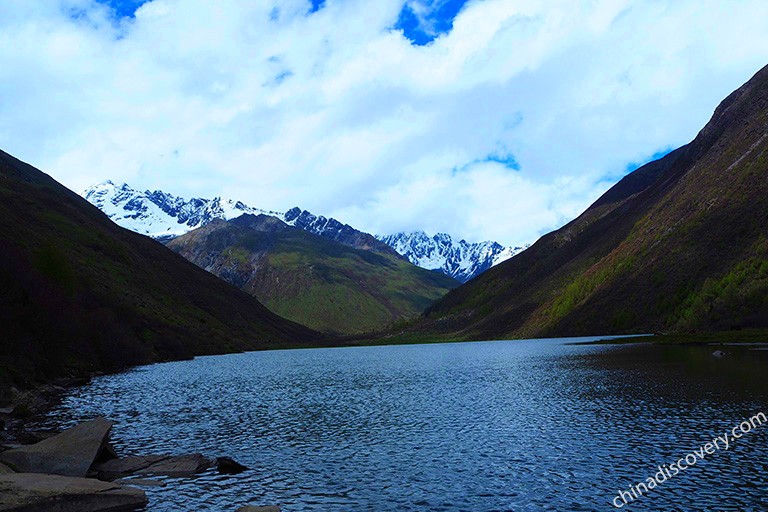 Mount Siguniang Trekking
Mount Siguniang Trekking
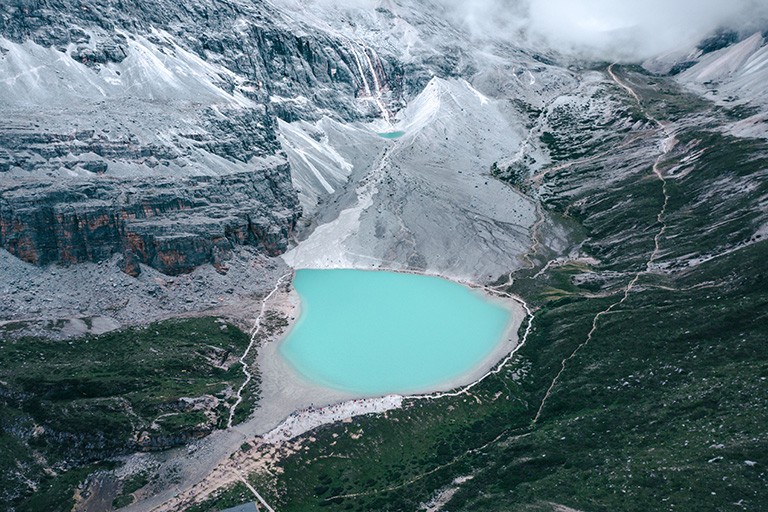 Daocheng Yading Nature Reserve Trekking
Daocheng Yading Nature Reserve Trekking
9: Packing List Tips
Prepare better for your tour with all necessary goods will be helpful with altitude adoption in this alpine area. Sunglasses, light backpack, hiking shoes, hot water bottle, camera, tissues, cash and Phone with SIM Card of China are usually the musts. If you are going to have some trekking experience in one or some of those mind-blowing mountains, professional mountaineering things are also suggested, like trekking poles, hiking jackets, etc. Bring or rent your stoves, gas canisters tent and sleeping bag from Chengdu if you are keen on camping trekking. Oxygen tanks are also recommended for tourists afraid of severe altitude sickness.
10: Take Some Cash with You
In such a remote area with different languages and habits from any other big city in China, cash may be extremely important for travelling around, especially in the areas going further west from Kangding. Foreigner cards usually don’t work. And you couldn’t find banks to change your currency to Chinese Yuan either. Luckily, most of the stalls, shops and ticket office accept Ali pay and WeChat pay. Even though, you are still suggested to take at least CNY 1,000 with you in case your battery runs out or you must to pay in cash sometimes. Bring more cash with you if you spend more than a week in this region.
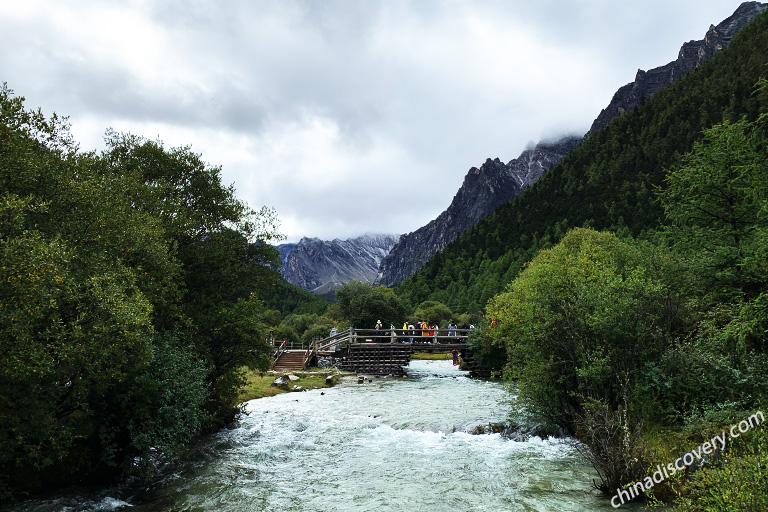 Yading Nature Reserve Trekking
Yading Nature Reserve Trekking
11: Embrace Yak-based Food
The food in those cities close to Chengdu, like Ya’an, Dujiangyan, Kangding and Sigunianghshan Town, is still in traditional Sichuan Cuisine style. You can try famed Sichuan dishes like Kung Pao Chicken, Yu-Shiang Shredded Pork, etc. However, Yak-based food are more common and traditional in the region closer to Tibet. Try to embrace those Yak-based food if you are there, like Yak Butter Tea and Yak Hot Pot.
 Yak Butter Tea
Yak Butter Tea
12: Language - Mandarin, Tibetan or Sichuan Dialect
In the Western Sichuan area west of Mount Siguniang and Kangding, the locals use Tibet-like languages to communicate with others, which is similar but also different from Tibetan. Some people, especially the young, speak Sichuan Dialect and Mandarin at the same time. On the contrary, people in the western Sichuan area east of Mount Siguniang and Kangding usually speak Sichuan Dialect or Mandarin. Expect little to English-speaking locals in this region. Only a small group of people speaks English.
 Tibetan Language
Tibetan Language
13: Respect Local Cultures and Religious Traditions
Similar to the Tibet region, people in Western Sichuan area have their devotion to their faith and culture. Please show your respect to their cultures and religious traditions once you are there. Don’t take offensive pictures of the monks and interiors of monasteries until you get a promise. Even if you don’t approve their religion which is different with yours, you are suggested to be polite and decent, and your respect and cation will be appreciated.
 Nanwu Monastery in Kangding
Nanwu Monastery in Kangding
14: Monasteries Are Everywhere, but Not All the Same
Though there are tons of monasteries in Western Sichuan, they are not all the same and not all follow the same faith and rituals. Choose at least one monastery in each county area to immerse yourself in the religious atmosphere there, even though the rituals seem opaque and esoteric for you. Don’t worry, those monasteries don’t provide special tourist service for any other visitor like you and even the Chinese tourists. And it is their stubbornness that gives you opportunity to have a glimpse of the authentic holy culture.
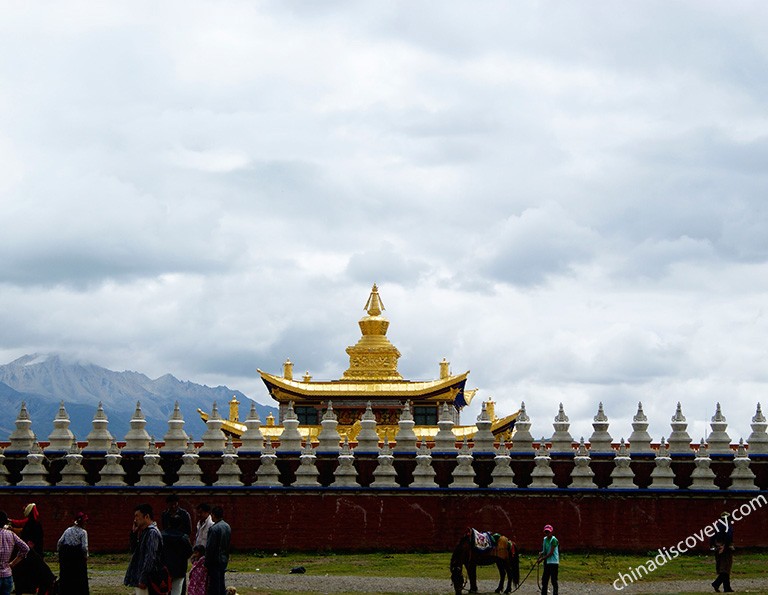 Tagong Monastery
Tagong Monastery
15: Festivals & Celebrations
If you happen to visit Western Sichuan during their festivals, you can leave yourself more time to be part of the festival. Joining in the group of the audiences is also a good idea. There are many different festivals in this region. And even every county area has its own unique celebrations that you could never see anywhere else. Those occasional surprises will add more culture color for your tour!
Top there festivals in Western Sichuan for your reference:
| Festivals or Celebrations | Time |
|---|---|
| Litang Horse Racing | Every first day of August (August 1) |
| Kora Festival | The fourth day of the fifth lunar month |
| Buddha Exhibition Festival | In early February, mid-April or mid-June |
Notice: the above time of the festivals and celebrations is only for your reference. Time may be rescheduled according to real-time situations.
 Litang Horse Racing
Litang Horse Racing
How to Plan a Western Sichuan Tour
Western Sichuan is a large area with numerous fantastic landscapes and cultures to explore. Most tourists spend at least 3 days for a tour in this region!
If your travel time is limited, you are suggested to explore the picturesque valleys in the Mount Siguniang Scenic Area and adorable pandas in Wolong.
Leave yourself more time if you want more surprises. For trekking lovers, Mount Siguniang, Daocheng Yading and Minya Konka (Mount Gongga) are the best picks for you. And if you prefer more culture atmosphere, remember to make stops at Kangding, Danba and Dujiangyan.
Take a tour to fulfill the Western Sichuan Small Tourist Loop is also a great idea. Along the way you will have opportunities to have a strong taste of Tibet and encounter somewhat all the most authentic and beautiful alpine landscape in the world. Such a loop tour takes about 7~13 days.
Want to add all the attractions you like into your own Tibetan Sichuan tour but don’t know how to plan such a tour? We China Discovery based in Chengdu are glad to help. Please feel free to contact us to customize your personal trip! The tour can be tailor-made according to your group size, time, physical condition, plan, interest, budget and every special need!
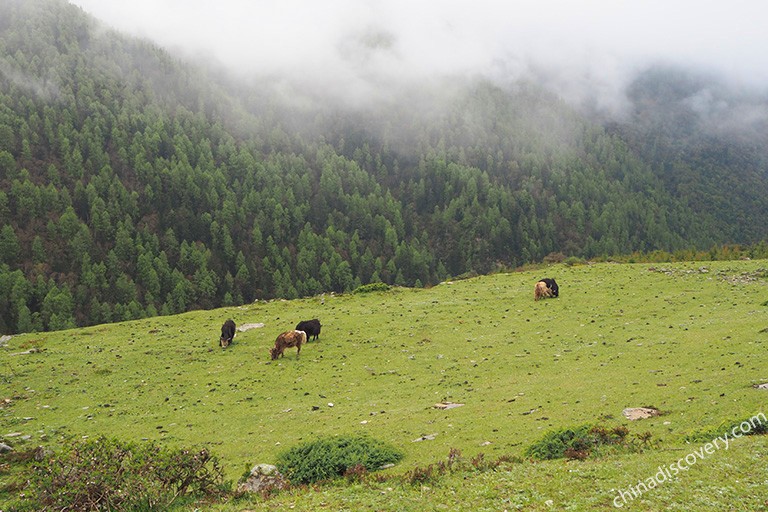 Mount Siguniang
Mount Siguniang
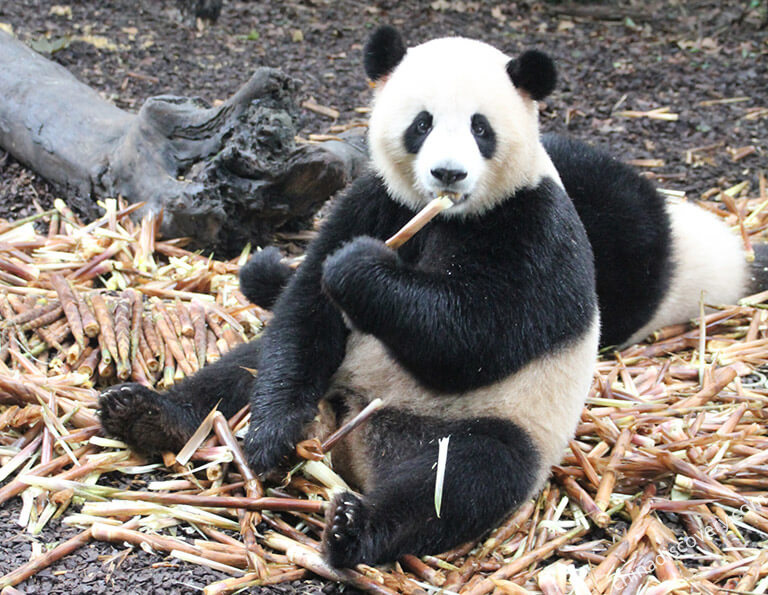 Cute Giant Pandas in Chengdu
Cute Giant Pandas in Chengdu
With unbeatable alpine snow-caped mountains, grasslands, meadows, valleys, lakes and a strong taste of Tibet with less red tape, Western Sichuan has gradually become a big hit for both landscape and culture exploring.
Heading to Western Sichuan soon? Here are some essential tips you’d better know before you go.
1: Western Sichuan, Tibetan Sichuan & Tibet
When it comes to Tibet, it usually refers to Tibet Autonomous Region on China’s southwestern edge, which is composed of Lhasa, Shigatse, etc. Western Sichuan is the area west of its capital Chengdu, including Dujiangyan, Ya’an, Kangding, Danba, Daocheng Yading, Siguniangshan, Xinduqiao, Tagong, Litang, Daofu, Batang, etc.
Since Western Sichuan neighbors Tibet on its west edge and most part of this region have historic relationships with Tibet, sometimes Western Sichuan, the area west of Kangding in particular, is also called Tibetan Sichuan.
Foreigners are required to fill for Tibet Entry Permits for a Tibet tour, while there are no such rules in Western Sichuan (Tibetan Sichuan) region. Besides, Tibetan Sichuan offers similar beauty and culture with Tibet!
2: Altitude Sickness is A Real Threat
Once you step into the Western Sichuan region, you are at an average altitude of 2,500m or so. And with the mountain or plateau height ascends and the farther west you go, this number will increase, which means you’ll may be walking around day-to-day with altitude lung or head pains. And you will more likely to get the altitude sickness if you risk getting up even higher by hiking or trekking mountains, because most of the mountains in this region are at 3,000, 4,000m or even 4,000m on average.
Before the trip, you are advised to have some Rhodiola Rosea tablets at least a week before you go. However, Rhodiola Rosea may be not available for everyone and cannot cure everything. If possible, please listen to your doctors about whether you can have a tour and whether you can take some medicine.
During the trip, you are suggested to be accompanied by an experienced local guide and walk slowly, drink more hot water and wear warmer.
| Destination | Chengdu | Ya’an | Luding | Kangding | Xinduqiao | Daocheng Yading | Tagong | Danba | Mount Siguniang | Dujiangyan | Batang | Jinchuan | Daofu |
|---|---|---|---|---|---|---|---|---|---|---|---|---|---|
| Altitude (m) | 500 | 627 | 1,321~4,200 | 2,560 | 3,300 | 3,730 | 1,860 | 3,000~5,484 | 592 | 2,900~6,032 | 2,580 | 2,000 | 3,250 |
3: Travel Alone is Not a Good Idea
Travelling Western Sichuan alone is not a good idea. During the way, you need professional local guides to tell you how to find the right way, how to behavior polite to the local culture and how to relieve or acclimatize altitude sickness! Yes, this region offers unbelievable breathtaking landscapes to be explored. However, the trip will soon become dull and tiring if you don’t know the cultures, since most of the sceneries, villages and monasteries look like the same (as you may think).
Besides, if you want to go further to those mountains and forests like Mount Siguniang, you are required to be accompanied by experienced local guides, or you are not allowed to do so.
We China Discovery based in Chengdu know everything of Western Sichuan and have helped numerous foreigners planning their Western Sichuan tours! If you are in need, please feel free to contact us for help!
 Travel with Experienced Guide & Driver
Travel with Experienced Guide & Driver
4. Best Time to Western Sichuan - Weather & Climate
Western Sichuan is a large area composed of a complex climate. The temperature there changes as season changes and altitude rises. Normally, the best time to visit Western Sichuan is from mid-May to October. From mid-May to July, Western Sichuan is a lively world with flourishing alpine flowers in different colors. In the autumn season from August to October, it is the time to meet with oil-painting-like colorful forests, meadows and valleys. However, from November to April of the next year, the scenery is relatively monotonous and the road is slippery to navigate.
 Daocheng Yading in Autumn
Daocheng Yading in Autumn
5: Transportation - Flight, Coach or Private Car
In the whole Western Sichuan area, there are all 4 airports, including Kangding Airport (康定机场), Daocheng Yading Airport (稻城亚丁机场), Hongyuan Airport (红原机场) and Gesar Airport (格萨尔机场). Amongst the four airports, Kangding Airport and Daocheng Yading Airport are popular for tourists and have flights from Chengdu. However, the flight tickets are a little bit expensive.
Compared with flights, tourists prefer travelling Western Sichuan by private car or coach, since it allows them to acclimatize the altitude by going up slowly and it takes less money. Private car travels are the hottest chosen way, because private car tours are more flexible and convenient.
With the development of Western Sichuan, highways well-paved with asphalt and have already reached to all the major counties and cities there. The driving roads are in good condition, but there are many tunnels and turns. Sometimes there may be temporary transportation restrictions, which may take one hour or so to stay at the point you stop. And in the mountainous areas to the villages, the driving roads are usually in its original looks, with no signs to point out the directions and no barrier to protect you. The frequent alpine frogs make the driving more dangerous. Therefore, you are suggested to hire an experienced local driver with you.
 Kangding Airport
Kangding Airport
 Daocheng Yading Airport
Daocheng Yading Airport
6: Accommodation and Toilets
Accommodation in Western Sichuan region is relatively limited but much better than you could imagine in such a remote area. You will find a good hotel to stay near almost every tourist attraction you are heading to. And the hotels in the city area can be better.
In the city or county central areas of Western Sichuan, it is not that difficult to find a good western-style toilet or squat toilet. However, things in the mountainous areas may sometimes be quite different. When it comes to those amazing tourist sites hidden in splendid but wild mountains, tissues become precious goods, since its sounds crazy to have shops or even stalls settled in the vast forest. Therefore, you are advised to bring some wet or dry tissues with you.
 Kangding Downtown
Kangding Downtown
7: Electric Maps Won’t Always Answer Your Questions
Foreigner cards don’t work there. And with the deeper you go into those mountains, the less you will get answers from your electric maps and phone with even Chinese SIM cards. If possible, you are suggested to take a paper map with you. And make full use of your compass provided by your phone.
Besides, take emergency batteries and portable power source with you in case you are abandoned by your phone.
8: Trekking in Western Sichuan is Really a Thrilling Challenge
Millions of alpine mountains and valleys in Western Sichuan create a paradise for trekking. From easy entry-level trails to tough pilgrimage koras, there are tons of trekking routes for hiking lovers to have fun. The most notable and popular trails are in Daocheng Yading, Mount Siguniang and Minya Konka (Mount Gongga). Daocheng Yading, “the Last Pure Land on Our Blue Planet”, offers the most wonderful routes getting close to the most epic lakes and meadows. The three holy mountains in Daocheng Yading are also sublime and splendid. Mount Siguniang, the queen of Sichuan Mountains, provides tourists both normal valley trekking chances and also wild and adventurous summit conquers. Trekking among its valleys can bring you into a fairyland that far beyond your word. While its forests and mountains prepare extreme wild trekking experience for professional trekkers. Mount Gongga, the King of Sichuan Maintains and also the hardest mountain to be conquered in China, is a lifelong topic for photographers and also trekkers.
Considering the difficult level of hiking in these mountains, Daocheng Yading and Mount Siguniang offers both basic routes and tough routes for you to choose. While in Mount Gongga, the trekking experience there requires more than in the above two mountains.
 Mount Siguniang Trekking
Mount Siguniang Trekking
 Daocheng Yading Nature Reserve Trekking
Daocheng Yading Nature Reserve Trekking
9: Packing List Tips
Prepare better for your tour and take all necessary goods will be helpful with altitude adaption in this alpine area. Sunglasses, light backpack, hiking shoes, hot water bottle, camera, tissues, cash and Phone with SIM Card of China are usually the musts. If you are going to have some trekking experience in one or some of those mind-blowing mountains, professional mountaineering things are also suggested, like trekking poles, hiking jackets, etc. Bring or rent your stoves, gas canisters tent and sleeping bag from Chengdu if you are keen on camping trekking. Oxygen tanks are also recommended for tourists afraid of severe altitude sickness.
10: Take Some Cashes with You
In such a remote area with different languages and habits from any other big city in China, cashes may be extremely important for travelling around, especially in the areas going further west from Kangding. Foreigner cards usually don’t work. And you couldn’t find banks to change your currency to Chinese Yuan either. Luckily, most of the stalls, shops and ticket office accept Ali pay and WeChat pay. Even though, you are still suggested to take at least CNY 1,000 with you in case your battery runs out or you must to pay in cash sometimes. Bring more caches with you if you spend more than a week in this region.
 Yading Nature Reserve Trekking
Yading Nature Reserve Trekking
11: Embrace Yak-based Foods
The foods in those cities close to Chengdu, like Ya’an, Dujiangyan, Kangding and Sigunianghshan Town, are still in traditional Sichuan Cuisine style. You can try famed Sichuan dishes like Kung Pao Chicken, Yu-Shiang Shredded Pork, etc. However, Yak-based foods are more common and traditional in the region closer to Tibet. Try to embrace those Yak-based foods if you are there, like Yak Butter Tea and Yak Hot Pot.
 Yak Butter Tea
Yak Butter Tea
12: Language - Mandarin, Tibetan or Sichuan Dialect
In the Western Sichuan area west of Mount Siguniang and Kangding, the locals use Tibet-like languages to communicate with others, which is similar but also different from Tibetan. Some people, especially the young, speak Sichuan Dialect and Mandarin at the same time. On the contrary, people in the western Sichuan area east of Mount Siguniang and Kangding usually speak Sichuan Dialect or Mandarin. Expect little to English spoken in this region. Only a small group of people speak English.
 Tibetan Language
Tibetan Language
13: Respect Local Cultures and Religious Traditions
Similar to the Tibet region, people in Western Sichuan area have their devotion to their faith and culture. Please show your respect to their cultures and religious traditions once you are there. Don’t take offensive pictures for the monks and interiors of monasteries until you get a promise. Even if you don’t approve their religious which is different with yours, you are suggested to be polite and decent, and your respect and cation will be appreciated.
 Nanwu Monastery in Kangding
Nanwu Monastery in Kangding
14: Monasteries Are Everywhere, but Not All the Same
Though there are tons of monasteries in Western Sichuan, they are not all the same and not all follow the same faith and rituals. Choose at least one monastery in each county area to immerse yourself in the religious atmosphere there, even though the rituals seem opaque and esoteric for you. Don’t worry, those monasteries don’t provide special tourist service for any other visitor like you and even the Chinese tourists. And it is their stubbornness that gives you opportunity to have a glimpse of the authentic holy culture.
 Tagong Monastery
Tagong Monastery
15: Festivals & Celebrations
If you happen to Western Sichuan during their festivals, you can leave yourself more time to be part of the festival. Joining in the group of the audiences is also a good idea. There are many different festivals in this region. And even every county area has its own unique celebrations that you could never see somewhere else. Those occasional surprises will add more culture color for your tour!
Top there festivals in Western Sichuan for your reference:
| Festivals or Celebrations | Time |
|---|---|
| Litang Horse Racing | Every first day of August (August 1) |
| Kora Festival | The fourth day of the fifth lunar month |
| Buddha Exhibition Festival | In early February, mid-April or mid-June |
 Litang Horse Racing
Litang Horse Racing
How to Plan a Western Sichuan Tour
Western Sichuan is a large area with numerous fantastic landscapes and cultures to explore. Most tourists spend at least 3 days for a tour in this region!
If your travel time is limited, you are suggested to explore the picturesque valleys in Mount Siguniang Scenic Area and adorable pandas in Wolong.
Leave yourself more time if you want more surprises. For trekking lovers, Mount Siguniang, Daocheng Yading and Minya Konka (Mount Gongga) are the best picks for you. And if you prefer more culture atmosphere, remember to make stops at Kangding, Danba and Dujiangyan.
Take a tour to fulfill the Western Sichuan Small Tourist Loop is also a great idea. Along the way you will have opportunities to have a strong taste of Tibet and encounter somewhat all the most authentic and beautiful alpine landscape in the world. Such a loop tour takes about 7~13 days.
Want to add all the attractions you like into your own Tibetan Sichuan tour but don’t know how to plan such a tour? We China Discovery based in Chengdu are glad to help. Please feel free to contact us to customize your personal trip! The tour can be tailor-made according to your group size, time, physical condition, plan, interest, budget and every special need!
Useful Sichuan Travel Guide
- Ultimate Sichuan Tourism Guide
- How to Plan A Sichuan Trip
- Top Things to Do in Sichuan
- 10 Most Beautiful Places to Visit
- Sichuan World Heritage Sites
- Featured Activities in Sichuan
- Top 7 Museums in Sichuan
- Top 8 Buddhist Temples on Mt Emei
- Sichuan Tibet Railway
- Famous Taoist Mountains & Temples
- Top 10 Ancient Towns
- Sichuan Travel Maps
- Best Places to Visit in Spring
- Best Places to Visit in Summer
- Best Places to Visit in Autumn
- Best Places to Visit in Winter
- Sichuan Weather & Seasonal Travels
- Western Sichuan Small Tourist Loop
Popular Sichuan Tours by Categories
- Top Sichuan Tours 2023
- Best Panda Tours
- Sichuan Hiking & Walking
- Sichuan Photography Tour
- Sichuan Culture Tours
- Students & Children Tours
- Sichuan Food Tour
- Sichuan Buddhism & Taoism Tour
- Customize Sichuan Tour
Top City Tours in Sichuan
Recommended Tours
Top 3 city tours chosen by most customers to explore in the best way. Check the detailed itinerary,or tailor your own trip now with us.
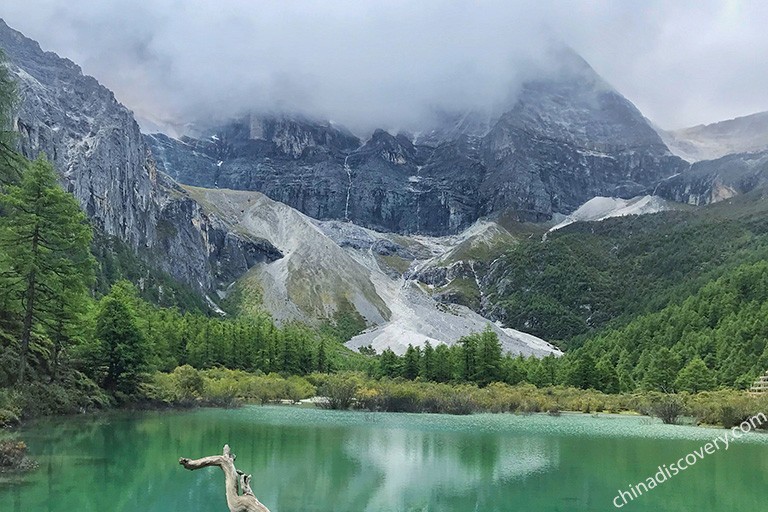
- 4 Days Daocheng Yading Classic Hiking Tour from Chengdu (by Flight)
Chengdu / Daocheng / Yading
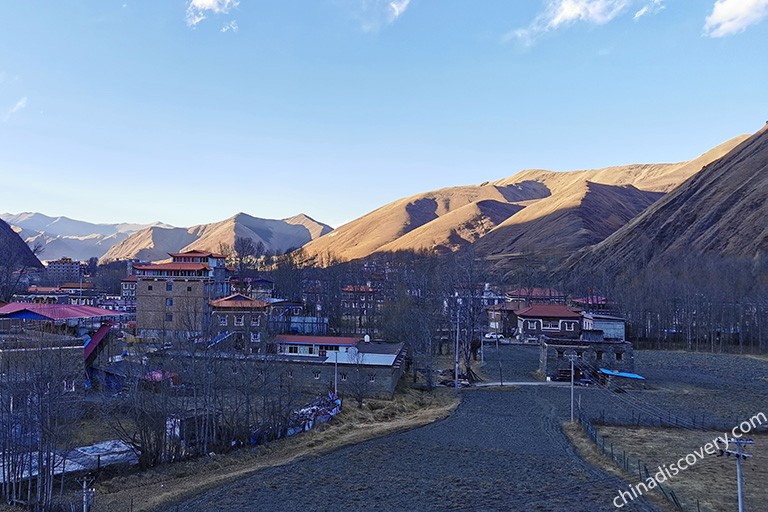
- 7 Days Western Sichuan Small Loop Tour
Chengdu / Dujiangyan / Mount Siguniang / Danba / Tagong / Xinduqiao / Hailuogou / Chengdu
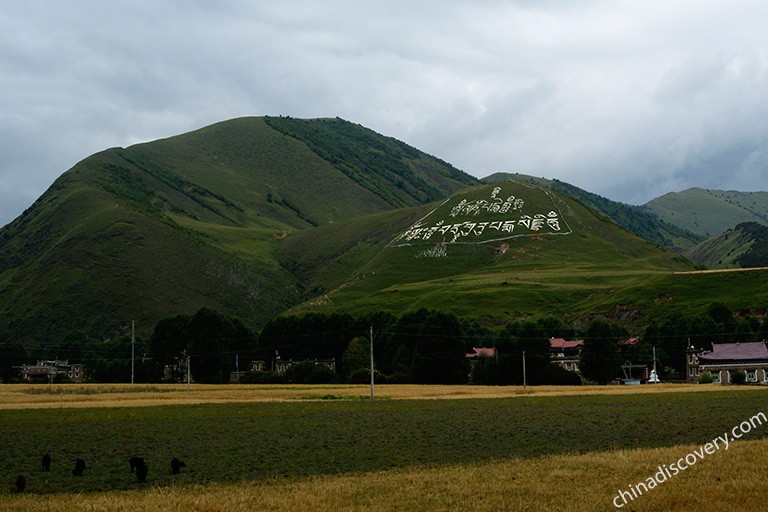
- 6 Days Western Sichuan Autumn Sightseeing Tour
Chengdu / Wolong / Mount Siguniang / Danba / Tagong / Xinduqiao / Kangding / Chengdu
Start planning your tailor-made holiday to China by contacting one of our specialists. Once inquired, you’ll get a response within 0.5~23.5 hours.
Customize a TripHave a question? Get answers from our travel experts or guests
- Your Question:
- Your Name:
- Your Email:
- Submit






